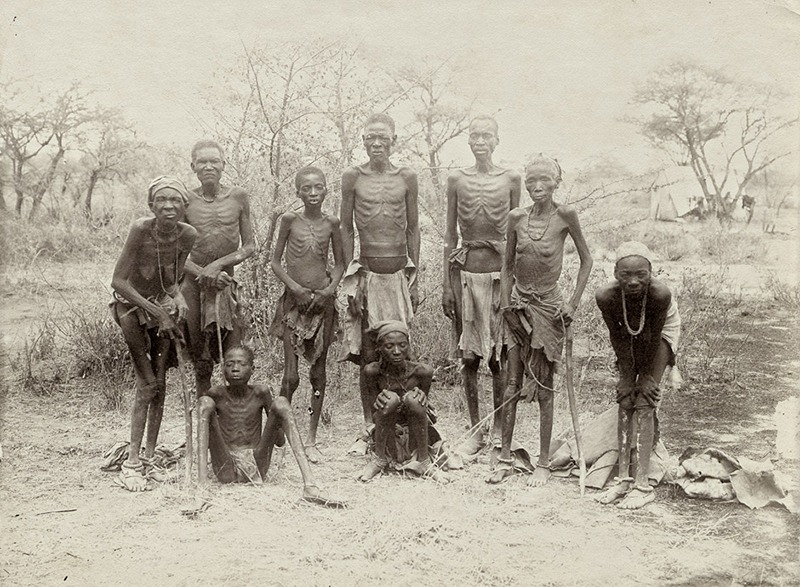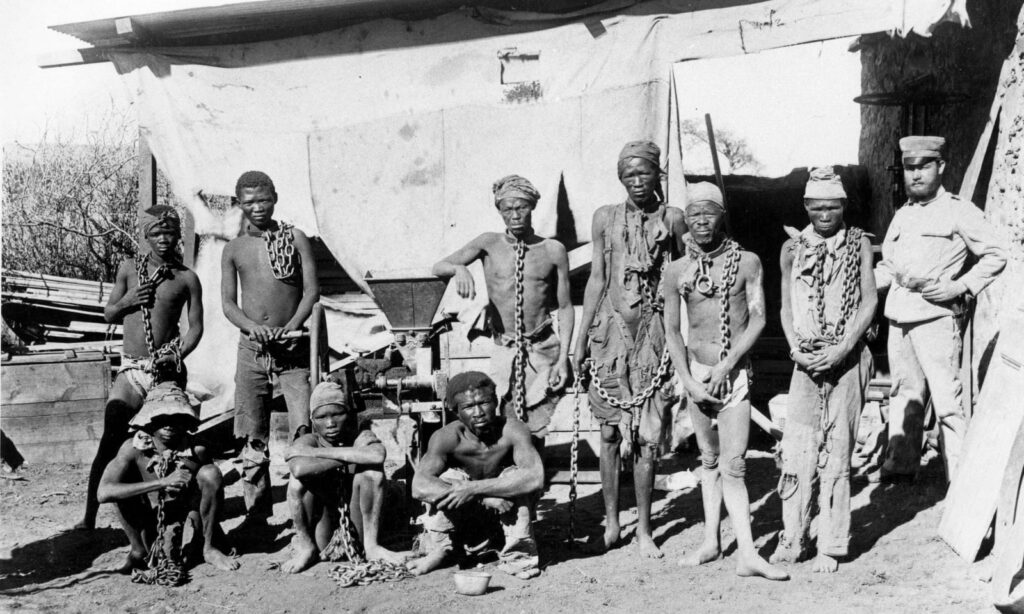Namibia marked its first official Genocide Remembrance Day on May 21, honoring the tens of thousands of Indigenous people who were killed by German colonial forces in the early 20th century, nearly four decades before the Holocaust.
Between 1904 and 1908, Germany, then the colonial power in what was known as German South West Africa, carried out a brutal campaign against the Herero and Nama communities after they resisted land and livestock seizures. Under the command of General Lothar von Trotha, German troops massacred civilians, drove them into the desert, and forced many into concentration camps, where they died from starvation, forced labor, and abuse.
Historians estimate that up to 80% of the Herero population and about 50% of the Nama were killed during this period, in what is widely recognized as one of the first genocides of the 20th century.

“This dark chapter is now part of our collective history of resistance and resilience,” said Namibia’s President Netumbo Nandi-Ndaitwah during a commemoration ceremony held in the gardens of the national parliament in Windhoek, the capital. “Many were forced into concentration camps where they were starved to death, and their skulls were taken to Germany for so-called scientific research.”
Namibia was colonized by Germany in 1884, making it one of several African territories occupied by European powers during the “Scramble for Africa.” While Germany also controlled parts of modern-day Togo, Cameroon, Rwanda, Burundi, and Tanzania, it established the largest settler presence in Namibia, with more than 50,000 settlers at its peak. The colonial policies enacted there laid the groundwork for racial ideologies that would later influence Nazi doctrine.
Following Germany’s defeat in World War I, Namibia came under South African control as part of the Versailles Treaty. It remained under apartheid rule until gaining independence in 1990, making it one of Africa’s most recently liberated nations.

“This is the first time Namibia has formally commemorated the genocide,” said Slimane Zeghidour, a senior editorialist at TV5Monde. “For decades, the narrative was controlled by colonial powers. Much of the historical record was held in South Africa, including school textbooks and archives.”
In 2021, Germany formally recognized the colonial-era atrocities as genocide and pledged $1.3 billion in development aid over 30 years. However, Namibia rejected the proposal, arguing that it fell short of genuine reparations and that descendants of the Herero and Nama were excluded from the negotiations.
“We take some comfort in the German government’s acknowledgment,” said President Nandi-Ndaitwah. “But we will continue our fight until there is a just and final resolution.”
The German government released a statement reaffirming its “moral and political responsibility” and underscoring its commitment to reconciliation. But to many Namibians, the journey toward justice, and true healing remains unfinished.

